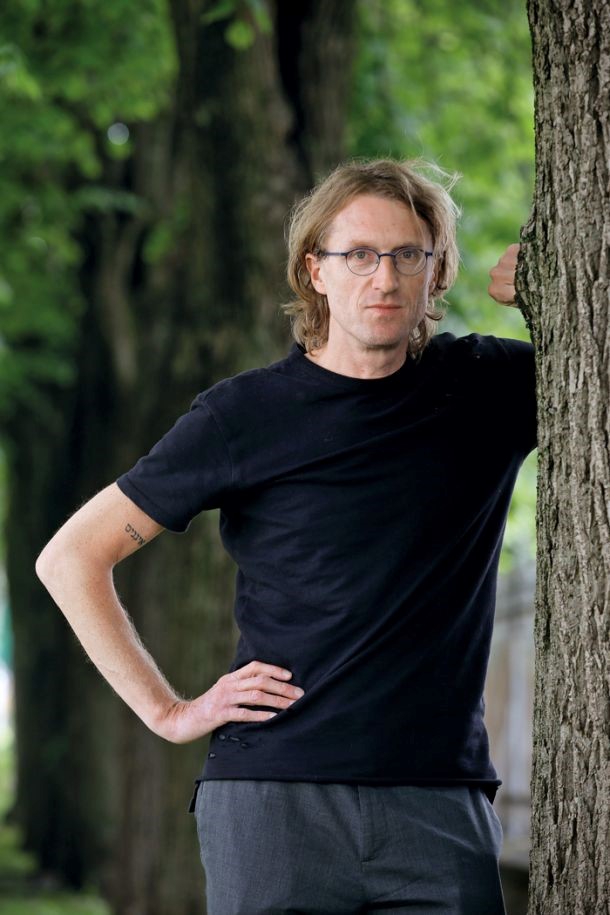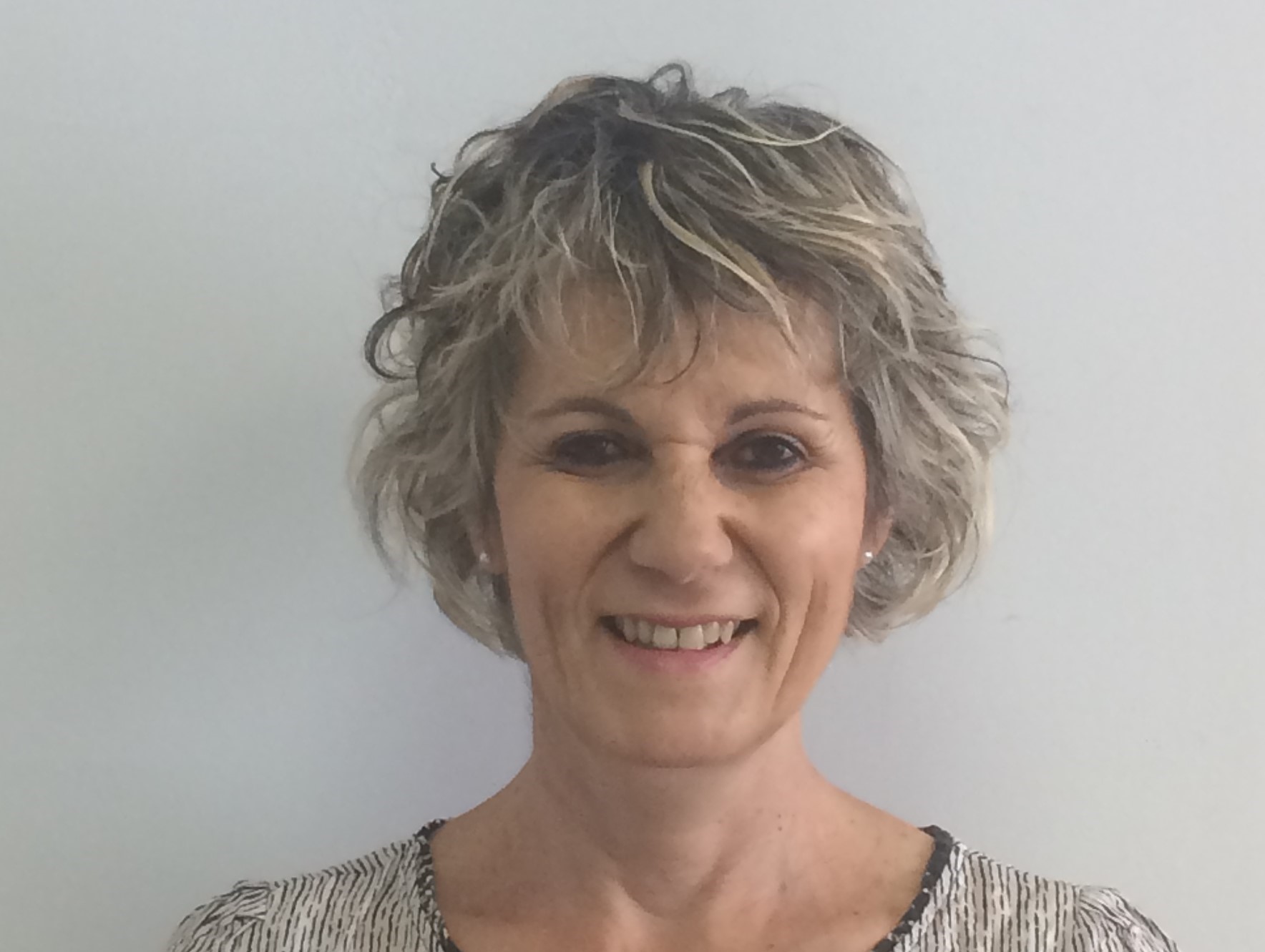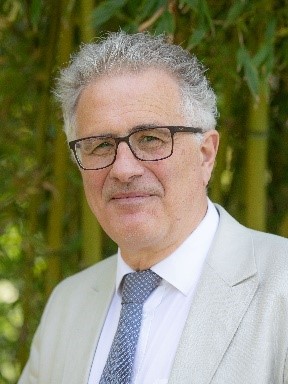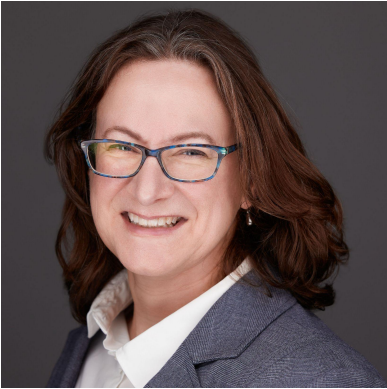Elisabeth Bik, Science Integrity Consultant
Elisabeth Bik, Science Integrity Consultant Elisabeth Bik (PhD 1996 Utrecht University), is a science integrity consultant who specializes in finding image duplications and flawed methodology in scientific papers. After receiving her PhD in Microbiology at Utrecht University in The Netherlands, she worked 15 years at the Stanford University School of Medicine on the microbiomes of humans and marine mammals. From 2016-2019, she worked at two microbiome startup companies. In March 2019, she left her job to become a science integrity volunteer and occasional consultant. She can often be found discussing science papers on Twitter at @MicrobiomDigest, writing for her blog ScienceIntegrityDigest or searching the biomedical literature for inappropriately duplicated or manipulated photographic images and plagiarized text. She has reported over 4,000 papers for issues with image duplication or other concerns. Her work has been featured in Nature, Science, Wall Street Journal, New York Times, Washington Post, Le Monde, The Guardian, and The Times (UK). In April 2021 she was awarded the Peter Wildy Prize by the UK Microbiology Society for her contributions in science communication. Her hobbies are gardening and collecting turtle figurines.

Michael Block is Professor of Superheavy Element Physics at Johannes Gutenberg University (JGU) Mainz and head of the research sections on Superheavy Element Physics at GSI Helmholtzzentrum Darmstadt and Helmholtz Institute Mainz (HIM), Germany.
He studied physics at University of Mainz, Germany, where he received his PhD working on laser spectroscopy of trapped calcium ions. He then joined the GSI Darmstadt as postdoctoral researcher and became the leader of the SHIPTRAP project. Later spent about one and a half years at the National Superconducting Cyclotron Laboratory at Michigan State University, MI, USA, to work on mass measurements of projectile fragments with LEBIT. In 2007, he joined the Superheavy Element Physics department of GSI Darmstadt as staff scientist. Since 2015, he holds a joint professorship at JGU Mainz and GSI Darmstadt.
His main research activities include measuring various atomic and nuclear properties of the actinides and the transactinides or superheavy elements. To this end, he employs Penning-trap mass spectrometry, resonance laser spectroscopy, and nuclear spectroscopy. He is also involved in other precision experiments and the development of novel methods for mass spectrometry and laser spectroscopy of rare isotopes.

- Board member of The European Society for Philosophy of Medicine and Health Care
- Expert member of the Belgian Superior Health Council
- Expert member The Belgian advisory committee of Bioethics.
He was coordinator of a research group at the Heyendaal Instituut, Radboud Universiteit Nijmegen and was member of The Centre for Ethics and Value Inquiry (UGent, BIG (Bioethics Institute Ghent), and is consultant for several healthcare organisations. He was part of the Health Innovation Lab (University Leiden, T&O) and is involved in several international scientific networks: ISIH (In Sickness and in Health) and TORCH (The Oxford Phenomenology Network), etc. For seven years, he was chairman of a Belgian organisation (de Maakbare Mens) which reflects ethically and philosophically upon biomedical evolutions. (www.demaakbaremens.org).
Current positions:
- Full professor at Ghent University (faculty of Health Sciences and Medicine)
- Head of integrity Club Brugge
- CEO Itinera (think tank)
Research topics: medical ethics, autonomy and responsibility in healthcare, medicalization, ethics in pandemics
All publications: https://biblio.ugent.be/person/801001238122
Website department: https://www.ugent.be/ge/phpc/en/research/units/philosophy-medicine-ethics.htm
Personal website: www.ignaasdevisch.com
Prof. Ronald Fernando Garcia Ruiz, Assistant Professor at the Department of Physics at MIT.

Ronald’s research actives are focused on the development of laser spectroscopy techniques to investigate the properties of subatomic particles using atoms and molecules made up of short-lived radioactive nuclei. His experimental work provides unique information about the fundamental forces of nature, the properties of nuclear matter at the limits of existence, and the search for new physics beyond the Standard Model of particle physics.
Ronald grew up in a small town in the Colombian mountains. As a teenager he moved to Bogota, where he obtained a bachelor’s degree in physics in 2009 at Universidad Nacional de Colombia. After earning a Master’s degree in Physics in 2011 at Universidad Nacional Autónoma de México, he moved to Belgium to start his PhD degree at KU Leuven. Ronald was based at CERN during most of his PhD working on laser spectroscopy techniques for the study of short-lived atomic nuclei. After his PhD, he became a Research Associate at The University of Manchester (2016-2017). In 2018, he was awarded a CERN Research Fellowship to lead the local CRIS team. At CERN, Ronald and collaborators have led several experimental programmes motivated by modern developments in nuclear science, atomic physics and quantum chemistry. Ronald has received several awards for his work, including: the Early Career Award from the Department of Energy of the US; the FRIB visiting scholar award; the Fundamental Physics and Innovation award - Convening award – from the Gordon & Betty Moore foundation; the MISTI Global Seed Fund award; the IOP Nuclear Physics Group Early Career Prize; and the PhD Thesis prize (period 2015-2017) from the Nuclear Physics Division of the European Physical Society.
LEBARON-JACOBS Laurence, MD, PhD
DRF/IBFJ/PROSITON - CEA de Cadarache - 13108 St Paul Les Durance Cedex, France
Cell : +33 681 377 523 laurence.lebaron-jacobs@cea.fr

Dr. Laurence Lebaron-Jacobs is currently an international advisor for the French Atomic Energy Commission (CEA) in the fields of radiobiology, radiopathology and radiotoxicology. She has been working at the Direction of Fundamental Research since 2002.
She studied external dosimetry and radiobiology at the Paris XI University, where she obtained her PhD degree in radiobiology - radiopathology in 1994. She received an MD degree from Pierre et Marie Curie University (France) in 1996.
During her PhD at the Institute of Protection and Nuclear Safety (IPSN), she was involved in a project of real-time external dosimetry aboard the MIR Russian orbital station. From 1995 to 2001, she worked at the IPSN in the areas of medical management of irradiated victims and research related to effects of ionizing radiation (gamma, heavy ions) on the central nervous system.
Dr. Lebaron-Jacobs has been the representative of France to UNSCEAR (United Nations Scientific Committee on Effects of Atomic Radiation) since 2010 (alternately with IRSN). Since 2018, she has been a member of the UNSCEAR Ad Hoc working group on effects and mechanisms, responsible for developing UNSCEAR future work programme (2020-2024) and scientifically based recommendations in the Committee's priority areas. Moreover, she is Senior Technical Advisor for the project of report on “Second primary cancer after radiotherapy” since 2019.
She has been the Vice Chair of the Article 31 Expert group (radiation protection of workers, patients and public) of the European Commission since 2014 (member since 2007), and Chair of the RIHSS (Research Implications on Health and safety standards) Working Party / Art31 GoE/EC.
Dr. Lebaron-Jacobs coordinated national criticality exercises between clinical biochemistry services of French nuclear sites (assessment of neutron dose in case of criticality accident) between 2003 and 2013 (facility decommissioning).
Wim Ubachs
- Department of Physics and Astronomy, VU University Amsterdam, The Netherlands
- Advanced Research Center for NanoLithography (ARCNL), Amsterdam, The Netherlands

Websites: www.nat.vu.nl/~wimu and https://arcnl.nl/research-groups/euv-plasma-processes
Email: w.m.g.ubachs@vu.nl
Short CV: Prof. Dr. Wim Ubachs obtained his PhD degree from the University of Nijmegen (NL) on a Thesis on High Resulotion Laser Spectroscopy on Diatomic Hydrides. After PostDocs at the Dalian Institute of Chemical Physics (PR China) and at Stanford University (US) he moved to VU University Amsterdam as a lecturer. He was endowed professor at TU Eindhoven and Guest Professor at Tokio University of Science and ETH Zürich, and from 2004 full Professor at VUA. Since 2014 also group leader at ARCNL.
Research: My work combines fundamental physics with applied physics, where both focus on the details of light-matter interaction. On the fundamental side I investigate the quantum level structure of small molecules for testing quantum electrodynamics and searching for physics beyond the Standard Model, including fifth forces and higher dimensions; this work uses the most advanced laser metrology infrastructure in the Netherlands and is funded by an ERC-Advanced grant. Further I have worked on the search for variation of fundamental constants, performing optical as well as radio astronomy. On the applied side I am involved with the Advanced Research Center for NanoLithography (ARCNL) and the ASML company, investigating the production of Extreme ultraviolet light from laser-produced plasma on tin-droplets. In addition I worked on Rayleigh-Brillouin scattering of gases in connection to the ADM-Aeolus mission (global wind satellite) of ESA.
Awards
2015 ERC Advanced Grant, European Research Council, EU
2016 Fellow of the American Physical Society
2012 Prize of the Templeton Foundation: New Frontiers in Astronomy and Cosmology

